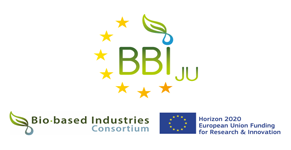With over 700 years of history, 111,000 students, 4000 teachers and 2000 employees, technicians and librarians, in addition to 2000 administrative staff, Sapienza University of Rome is the biggest university in Europe. Its outstanding multidisciplinarity gives the ability to deal with several issues related to the wide spread of human needs, as demonstrated by the high number of EU-funded projects where the proponent is involved. The Department of Chemical Engineering, Materials, Environment (DICMA) is part of Sapienza University of Rome and it combines researchers and professors who carry out research and technological innovation in the fields of process engineering, materials, biotechnology, environment and industrial security. In all of these areas, DICMA’s activity embraces a variety of skills and methods.
The main research guidelines are represented by projects recognized and funded at national level, such as National Projects (PONs) and National Research Projects (PRINs), and internationally, as well as numerous projects funded by industries and private sector.
One of the main lines of research in the biotechnology sector concerns the production of high value added products such as carotenoids, polysaccharides or phenolic extracts from agro-industrial wastes (i.e. residues from industrial processing of tomatoes, artichokes, olives, berries and spent coffee grounds). On this topic Sapienza coordinated the EU-funded project “NoAW” (H2020-WASTE-2015-two-stage).
The technologies we usually use are based on environmental friendly mixtures of solvents or, preferably, tailored formulation of hydrolytic enzymes capable of degrading the vegetable matrix and enhance the extraction yields ot targeted compounds (Research Project funded by Sapienza University of Rome in 2012). This approach has also been successfully used to recover metabolites from microalgae, especially lipids for biodiesel production, carotenoids and proteins. Sapienza’s focus on new routes for biofuels production has been well represented also in the coordinated EU-project “Biowalk4Biofuels” (FP7-ENERGY-2009-1).
The possible reuse of the solid extract residue as adsorbent material for the removal of pollutants or as fibers and nanocellulose source for biocomposite production, as well as a component for the formulation of quality feed was also deeply investigated.
As it is clear, Sapienza’s researches aim to zero-waste industrial cycles, considering the research with the main stake-holders (coordinated EU-funded project “RES URBIS” in H2020-CIRC-2016OneStage) and process design & risk analysis of the developed new technologies (iNTeg-Risk in EU-funded project FP7-NMP-2007-LARGE-1)
Retrieved bioactive compounds can be used to develop new functional products with high antioxidant activity and / or antimicrobial properties for food or cosmetic use. In particular, the possibility of enriching or fortifying widely-consumed foods such as yoghurt, baked goods and beverages, with polyphenol and / or carotenoid extracts is evaluated. The stability of the products obtained is also studied in order to define shelf life and optimum conservation conditions.
This strong background will be exploited for the realization of EXcornSEED project. The research, in fact, will include an experimental phase, aim to study the extraction procedure and the influence of the operating parameters on the extraction yields of selected bioactive compounds from the three side streams considered (corn oil, rapeseed meal, thin stillage). In particular, the extraction, enhanced by the tailored enzymatic mixtures, is one of the main process that will be evaluated for the recovery of proteins, biopeptides and other value added compounds from rapeseed meal and thin stillage, while liquid to liquid solvent extraction and supercritical CO2 will be studied as possible technique to extract valuable green biochemicals from corn oil.


